We use information collected through cookies and similar technologies to improve your experience on our site, analyze how you use it and for marketing purposes.
Your privacy settings
We and our partners use information collected through cookies and similar technologies to improve your experience on our site, analyze how you use it and for marketing purposes. Because we respect your right to privacy, you can choose not to allow some types of cookies. However, blocking some types of cookies may impact your experience of the site and the services we are able to offer. In some cases, data obtained from cookies is shared with third parties for analytics or marketing reasons. You can exercise your right to opt-out of that sharing at any time by disabling cookies.
Manage Consent Preferences
Necessary
Always ON
These cookies and scripts are necessary for the website to function and cannot be switched off. They are usually only set in response to actions made by you which amount to a request for services, such as setting your privacy preferences, logging in or filling in forms. You can set your browser to block oralert you about these cookies, but some parts of the site will not then work. These cookies do not store any personally identifiable information.
Analytics
These cookies and scripts allow us to count visits and traffic sources, so we can measure and improve the performance of our site. They help us know which pages are the most and least popular and see how visitors move around the site. All information these cookies collect is aggregated and therefore anonymous. If you do not allow these cookies and scripts, we will not know when you have visited our site.
Embedded Videos
These cookies and scripts may be set through our site by external video hosting services likeYouTube or Vimeo. They may be used to deliver video content on our website. It's possible for the video provider to build a profile of your interests and show you relevant adverts on this or other websites. They do not directly store personal information, but are based on uniquely identifying your browser and internet device. If you do not allow these cookies or scripts it is possible that embedded video will not function as expected.
Google Fonts
Google Fonts is a font embedding service library. Google Fonts are stored on Google's CDN. The Google Fonts API is designed to limit the collection, storage, and use of end-user data to only what is needed to serve fonts efficiently. Use of Google Fonts API is unauthenticated. No cookies are sent by website visitors to the Google Fonts API. Requests to the Google Fonts API are made to resource-specific domains, such as fonts.googleapis.com or fonts.gstatic.com. This means your font requests are separate from and don't contain any credentials you send to google.com while using other Google services that are authenticated, such as Gmail.
Marketing
These cookies and scripts may be set through our site by our advertising partners. They may be used by those companies to build a profile of your interests and show you relevant adverts on other sites. They do not store directly personal information, but are based on uniquely identifying your browser and internet device. If you do not allow these cookies and scripts, you will experience less targeted advertising.
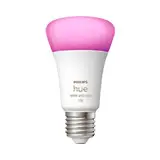
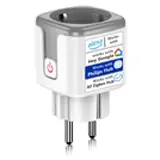
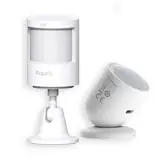
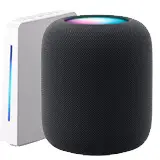
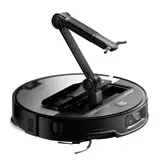

Smart alarm systems: are standalone models worth it?
Are you concerned about the security of your home or business? Smart alarm systems have revolutionized the way we protect our spaces. But do you really need a smart alarm system, and is it worth opting for a standalone model? Let's explore it in depth. These systems not only offer real-time monitoring, but also integrate with other home devices, such as cameras and motion sensors. In addition, when combined with sustainable smart switchesBy using a comprehensive solution, you can optimize your home's energy consumption while ensuring its safety. Evaluating your specific needs will allow you to decide if a comprehensive solution can provide you with greater peace of mind and protection.
What are Autonomous Intelligent Alarm Systems?
A self-contained smart alarm system, unlike traditional systems, doesn't rely on a constant connection to a monitoring station. This means it works independently, alerting you (and anyone you designate) directly in case of an emergency. It uses sensors to detect intruders, smoke, water leaks, or any other anomaly, and notifies you via your smartphone, whether by app, SMS, or even a call.
Key Components of an Autonomous System
Advantages of Autonomous Smart Alarm Systems
There are several reasons why considering a standalone smart alarm system might be an excellent option for your property's security:
Savings Breakdown: Cost vs. Benefit
Let's compare the costs of a traditional system with professional monitoring versus a self-monitored system.
As you can see, although the initial cost of a traditional system may be lower (depending on the equipment), the monthly fees quickly accumulate, making the autonomous system a much more economical option in the long run.
Disadvantages and Important Considerations
While autonomous systems offer many advantages, it's also crucial to consider their disadvantages:
Scenarios Where Autonomous Systems May Not Be Ideal
There are specific situations where a system with professional monitoring might be more suitable:
How to Choose the Right Smart Home Security System?
Choosing the right system depends on your needs and budget. Here are some factors to consider:
Examples of Popular Systems on the Market
Many options are available. Some popular systems include:
It's important to read reviews and compare the features of each system to determine which best suits your needs.
Practical Advice for Maximizing Safety with an Autonomous System
Here are some tips to get the most out of your independent smart alarm system:
Protecting Your Privacy
Security isn't just about protecting your physical property, it's also about protecting your privacy. Follow these tips:
Conclusion: Are Autonomous Smart Alarm Systems Worth It?
In short, autonomous smart alarm systems can be a great option for protecting your home or business, especially if you're looking to save on monthly monitoring costs and have greater control over your security. However, it's important to carefully consider the drawbacks and make sure you're willing to take full responsibility for monitoring alerts and responding to emergencies. If affordability, control, and customization are your priorities, and you're willing to invest time in setup and maintenance, a self-hosted system might be the perfect solution for you.
Ready to take control of your security? Research, compare options, and choose the system that best fits your needs. Share this article with your friends and family to help them make an informed decision about their home security!
Related Posts
Smoke and gas detectors: protecting your home from fires
Your home is your sanctuary. You want to feel safe, right? Fires are one of the biggest threats to home safety. But, did you know that most house fires are preventable? One of the best tools to achieve this is smoke and gas detectors. They work as your silent guardians, always vigilant…
TOP 5 facial recognition video surveillance systems
Tired of traditional video surveillance? Looking for smarter security? Facial recognition is here to stay. We no longer just record, now we analyze. In this article, we present the TOP 5 facial recognition video surveillance systems. Get ready to discover a new dimension in protecting your home, business, or property. Security…
How to Detect Gas Leaks with Smart Devices
Picture this: you're sleeping peacefully, unaware that a gas leak is slowly filling your home. Scary, isn't it? Fortunately, modern technology offers us solutions to prevent these situations. We no longer rely on smell alone; we can now detect gas leaks with smart devices. These devices, increasingly affordable and easy to use, ...
TOP 5 smart locks: unlock the door without a key
Tired of digging for your keys at the bottom of your bag or worrying about losing them? Smart locks are here to revolutionize your home security! Forget traditional keys and welcome convenience, security, and total control from your smartphone. Discover the future of security…